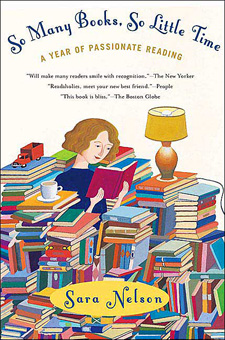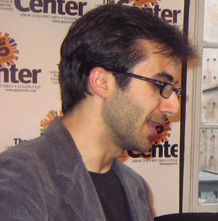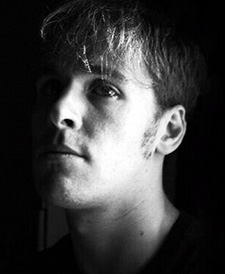More Notes Towards an Ambassador of Literature
At the beginning of 2012, I wrote out some ideas I’d been having about an “ambassador of literature,” essentially a “paid spokeperson for awesome books” who could use online and offline platforms to encourage people to read more—with some specific recommendations, sure, but at a fundamental level simply promoting reading itself as a thing worth doing. I talked about NPR’s Nancy Pearl as a possible model for how that could work, and I think Amazon.com came up with another interesting approach, hiring Sara Nelson as the editorial director of the store’s book section.
 For those of you who don’t know who Sara is, here’s a quick rundown: She’s a former editor-in-chief at Publishers Weekly, and used to run the books section at O Magazine; she’s also the author of So Many Books, So Little Time, a memoir detailing her attempt to read a book a week for an entire year. Although I never reported directly to Sara when I was writing for PW, I did have a fair amount of contact with her, and I’d also see her regularly at book fairs and writers’ conferences—in some cases, we’d be speaking on the same panels about making it in today’s book world… or, for that matter, whether today’s book world is going to make it. She loves books, and from what I’ve seen, she recognizes that books depend upon a thriving publishing industry, and a thriving retail market, if they’re going to flourish.
For those of you who don’t know who Sara is, here’s a quick rundown: She’s a former editor-in-chief at Publishers Weekly, and used to run the books section at O Magazine; she’s also the author of So Many Books, So Little Time, a memoir detailing her attempt to read a book a week for an entire year. Although I never reported directly to Sara when I was writing for PW, I did have a fair amount of contact with her, and I’d also see her regularly at book fairs and writers’ conferences—in some cases, we’d be speaking on the same panels about making it in today’s book world… or, for that matter, whether today’s book world is going to make it. She loves books, and from what I’ve seen, she recognizes that books depend upon a thriving publishing industry, and a thriving retail market, if they’re going to flourish.
What does it mean, though, to be the “editorial director” of Amazon.com’s book section?
9 May 2012 | theory |
Author2Author: Nick Antosca & Blake Butler
I first met Nick Antosca a few years back, shortly after the publication of his first novel, Fires. Recently, he let me know about his latest literary project, a satirical novel called The Obese, and then mentioned that Blake Butler also had a new book, Anatomy Courses, from the same independent press. I’d heard a lot about Butler’s earlier work, especially There Is No Year and Nothing: A Portrait of Insomnia, so I agreed with Nick that he’d probably make for a great conversation partner—soon after, I was emailed the following exchange…
 Nick Antosca: We’ve probably only met in person three or four times, but we’ve known each other a while via the tubes. And now we have books coming out at the same time from Lazy Fascist Press—both pretty weird books. You co-authored Anatomy Courses with Sean Kilpatrick. Collaboration’s a tricky thing… I have a writing partner for film and TV work, but I’ve never tried it with fiction. How’d Anatomy Courses come about for you and Sean?
Nick Antosca: We’ve probably only met in person three or four times, but we’ve known each other a while via the tubes. And now we have books coming out at the same time from Lazy Fascist Press—both pretty weird books. You co-authored Anatomy Courses with Sean Kilpatrick. Collaboration’s a tricky thing… I have a writing partner for film and TV work, but I’ve never tried it with fiction. How’d Anatomy Courses come about for you and Sean?

Blake Butler: Sean and I had known each other online for a while, I think, and talked a bit, but never really met or anything more than a handful of emails or such. I’d read his work, though, and felt really compelled by his tone and approach to sentences. We certainly shared a certain panache for the grotesque not just of image but of banging words together, I think. If I remember correctly I emailed him and mentioned that it might be fun to try to write something together, just to see what would happen. I don’t think we realized until somewhere in the middle we were writing what basically (in my mind) has the structure of a novel, though one destroyed of most everything but language and a few recurring ideas about the bodies and locations that the nastiness takes place in.
I think I sent him a page that would be the first page of the book in a document and then he wrote what ended up being the second page, and we just took turns like that back and forth over something like 10 months it seems like, each adding to where the other had left off, but always beginning a new page. We always alternated pages, and the way we seemed to take cues in the flow of it was more semantic, often, than plotwise; the ground continued shifting as we went, which made it fun. I learned a shitload watching Sean’s process: he’s a super meticulous editor, and a voracious revisor of his own work, in a different way than I am, and so each time I got the thing back I’d often find he’d gone through and fucked with sentences all throughout his prior parts, stacking them and beefing them out and manipulating the phrasing and the space. Sometimes he’d get so caught up on a single sentence he’d work on it a week and send it back with a note saying he didn’t want to hold me up, and I’d do mine in like an hour and send it back and he’d go into the sauna again; each iteration just kept getting more and more ornate and fucked and I loved it. We both did our thing and stole from each other and smeared each other around in our own passages, kind of forming a structure out of machine shit.
Finally one day he sent one of those couple of sentence sections saying he’d been staring at the sentence for a week and couldn’t stop tonguing it or something, and I read the sentence and it lopped my head off, and that was the end of the book. I don’t think we ever intended to make something publishable really, and I’m surprised we found a publisher in Lazy Fascist; and of course, once that came about, the revision circus went into hypermode for us both, and the book really started to eat itself.
What about The Obese? That book seemed to come out of nowhere for me, after Midnight Picnic. I hadn’t heard you were working on anything and began to wonder and then all of a sudden there was this new novel, seemingly much quicker than the gap between Midnight Picnic and the one before it, Fires?
7 May 2012 | author2author |


 Our Endless and Proper Work is my new book with Belt Publishing about starting (and sticking to) a productive writing practice.
Our Endless and Proper Work is my new book with Belt Publishing about starting (and sticking to) a productive writing practice. 
